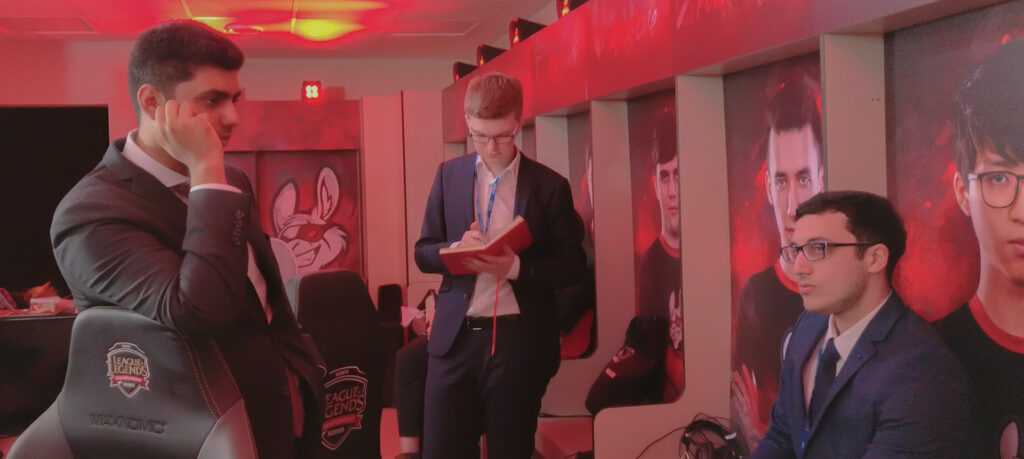You should be curious about the Esports landscape, it is developing quickly and there are billions of gamers in this world who are learning to accept Esports competition as an entertainment format. I learned quite a bit about the industry in all the meetings, research, and regular discussions I had over the course of my internship. As I alluded to in my other Blog post, game developers and their games are not the most important cog in the wheel. You might wonder what is; but there is no correct answer. There are many different actors in the industry, each their influence is unique and it is incredibly difficult to tell the weight each of them pulls.
Game Developers and Publishers follow different goals, Esports Teams are distinct in what they want to accomplish, Player Agencies work with players to ensure their rights against teams, Law Offices were founded purely for Esports legal reasons, marketing companies have to account for Esports in their advertising to many younger audiences and sway the audience too. The audience and gamers have wishes and expectations, demands and requirements. Esports Players also often have a voice in decisions about their game, they work with a player agent, their own team, the team’s content production crew, the Esports League. So many different actors, it is hard to say which is the most important. At the top of the hierarchy you can find game developers and publishers, Esports teams, and gaming audiences as the largest forces of the industries.
But why? How is there an audience for professional video gamers large enough to support tens of thousands of jobs around the world? Depending on who you ask you will get a different answer, because this is a topic that requires a lot of knowledge and research, and many do not have that about Esports.

Quite frankly, neither do I, at least not fully. But I can give an educated guess: This is an industry of emotions. It lives and dies by its audience. Gaming was not invented 40 years ago. The need to game is within all of us. Many of the largest sports audiences are not built out of being just objectively more enjoyable or better sports than others, but out of the appeal to our playful selves when we were children and playing the actual sports ourselves. Baseball is as large as it is because in the USA, a father and his son throwing and catching baseballs is seen as a strong bonding activity, almost stereotypical of an American upbringing as even softball teams are popular extracurriculars and almost a cultural staple. Some argue baseball would not exist if not for the feeling of nostalgia. We want emotions, we care about feelings, because we are human. We see an athlete fighting all year long to win the world trophy they have been striving for since they were a wee kid just like us, and we are happy for them. We feel the emotional rollercoasters of the teams we support and the players we appreciate.
This is not any different for Esports, and as children grow up with games more and more, Esports keeps growing and growing as the population’s acceptance for Esports as an entertainment format only different from Sports in the game that is played continually increases. It will not disappear because gaming is within us, always has been. 40 years ago it used to be for geeks, now those youths are actors of the industry, and the barrier of entry to videogaming is lower than ever.


